Newsletter
Subscribe to Newsletter
Stay informed and always up to date with KATTOVIT. Be the first to hear about new products, discounts, advice texts, etc.
Schon ab 30€ ist deine Bestellung versandkostenfrei!
Cart
Your cart is empty
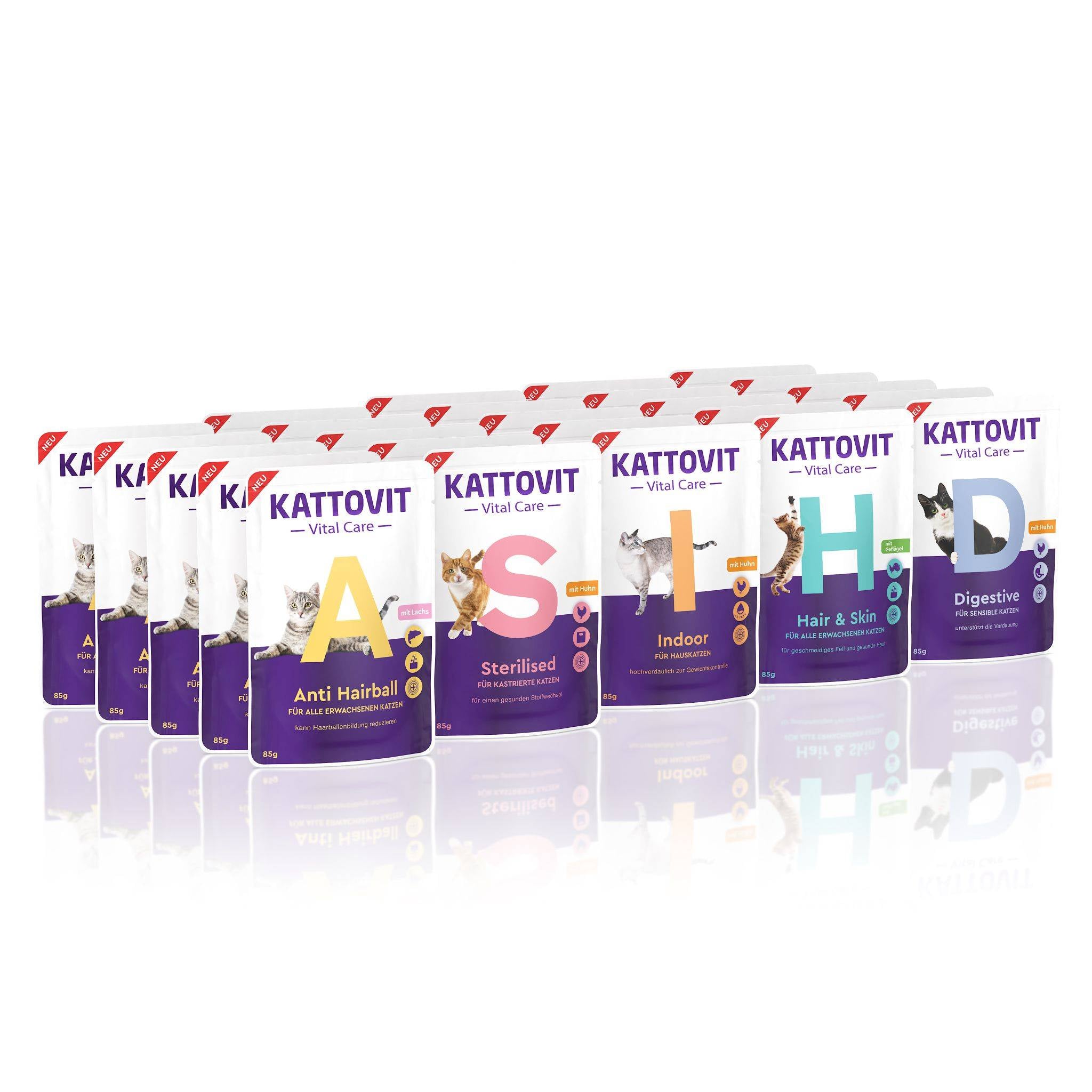

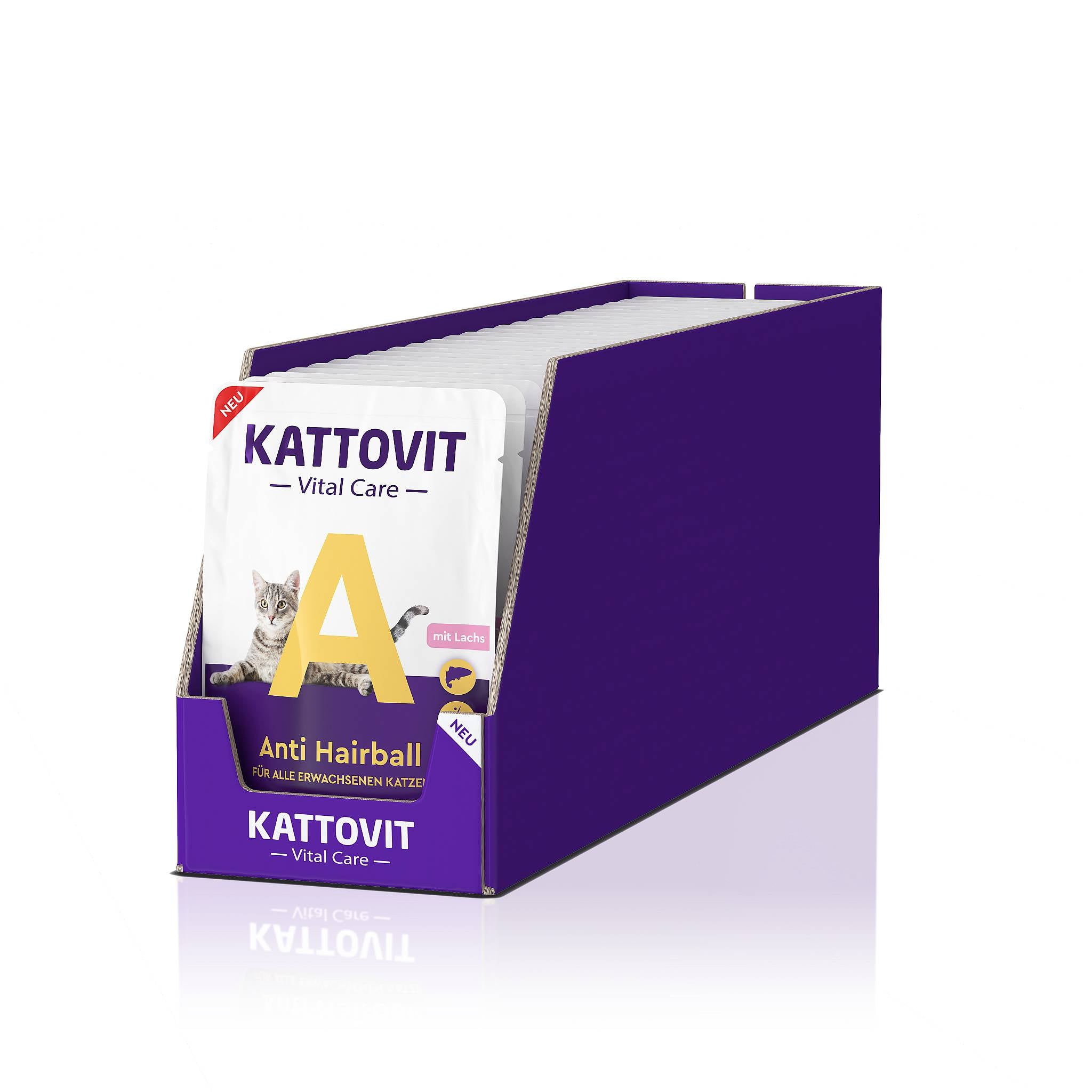
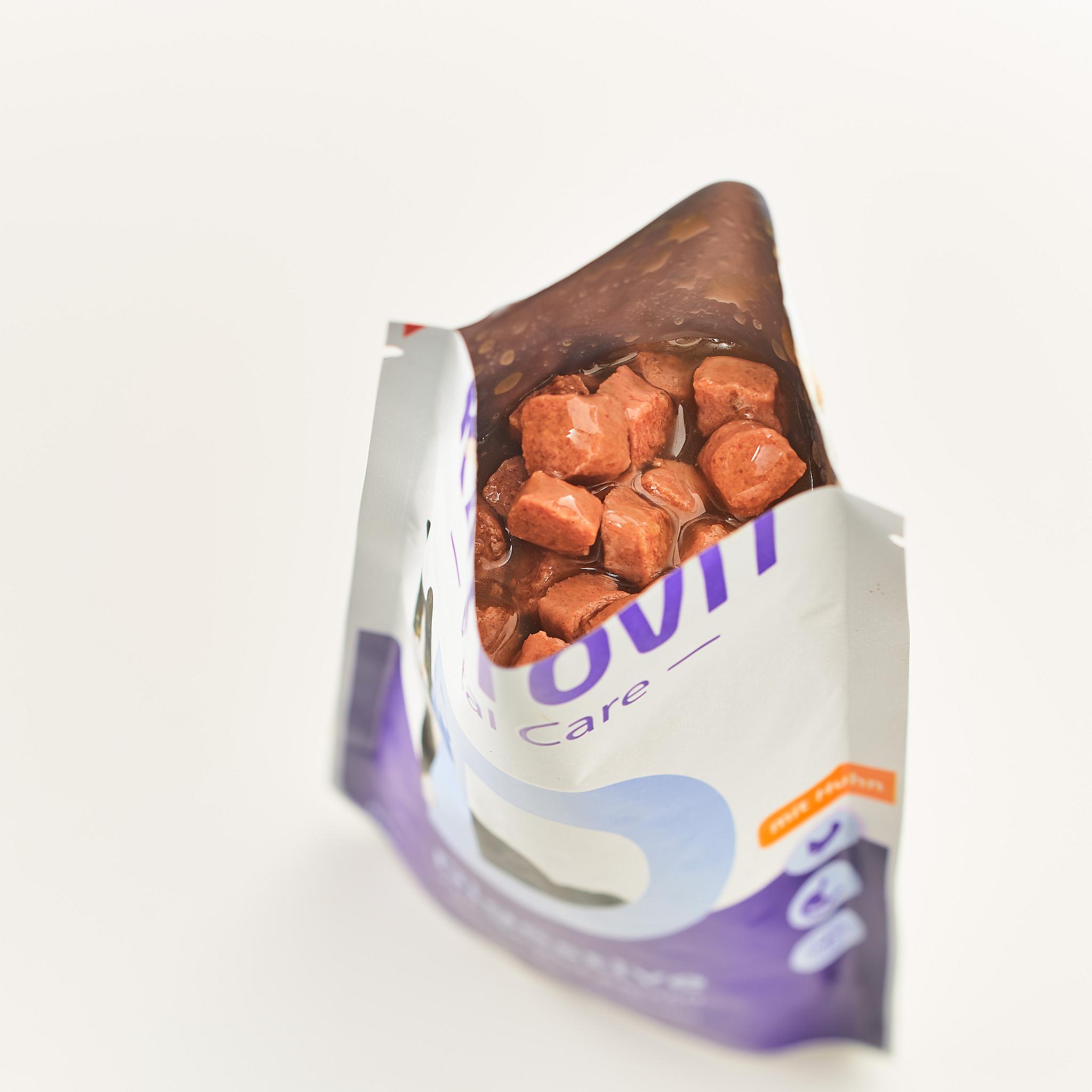
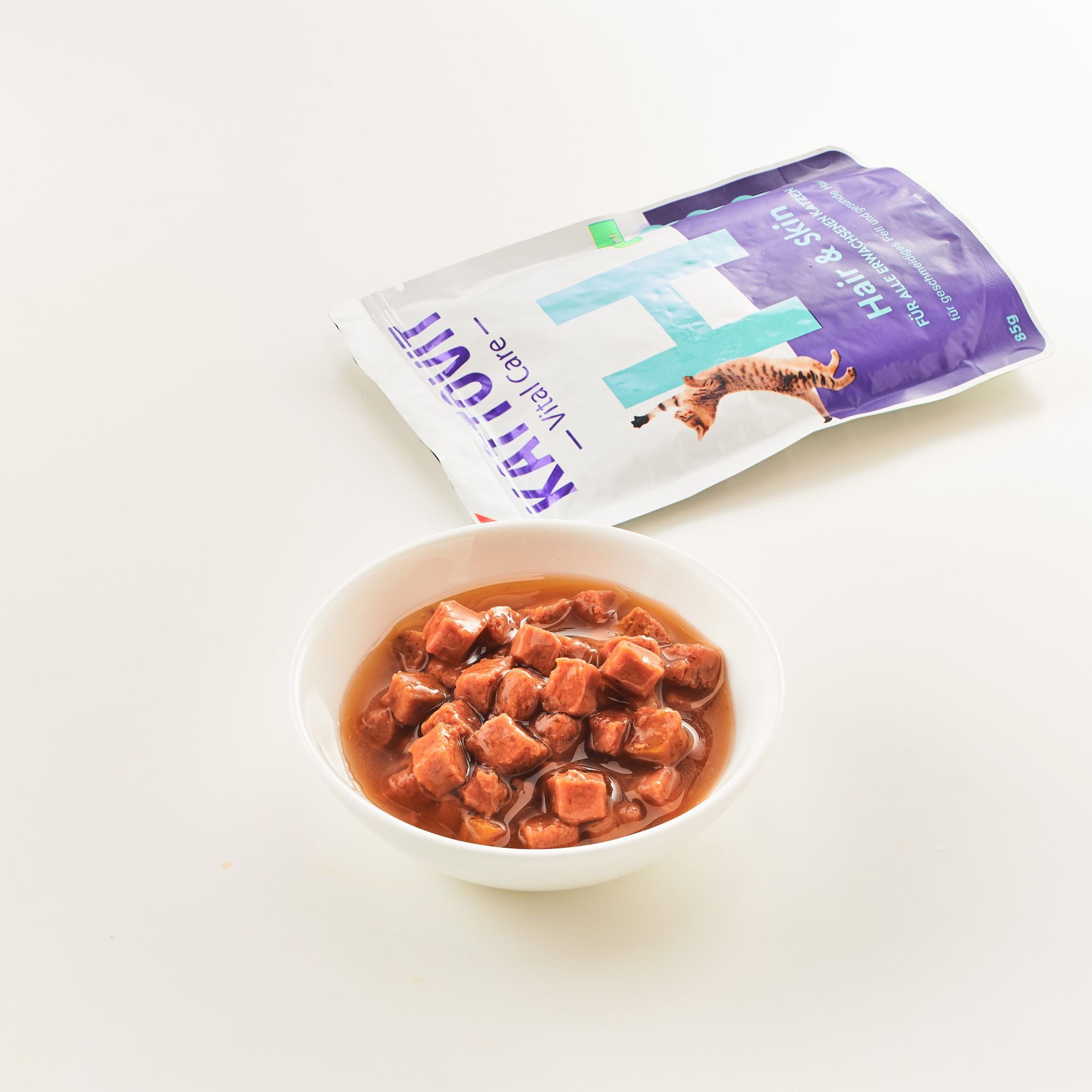
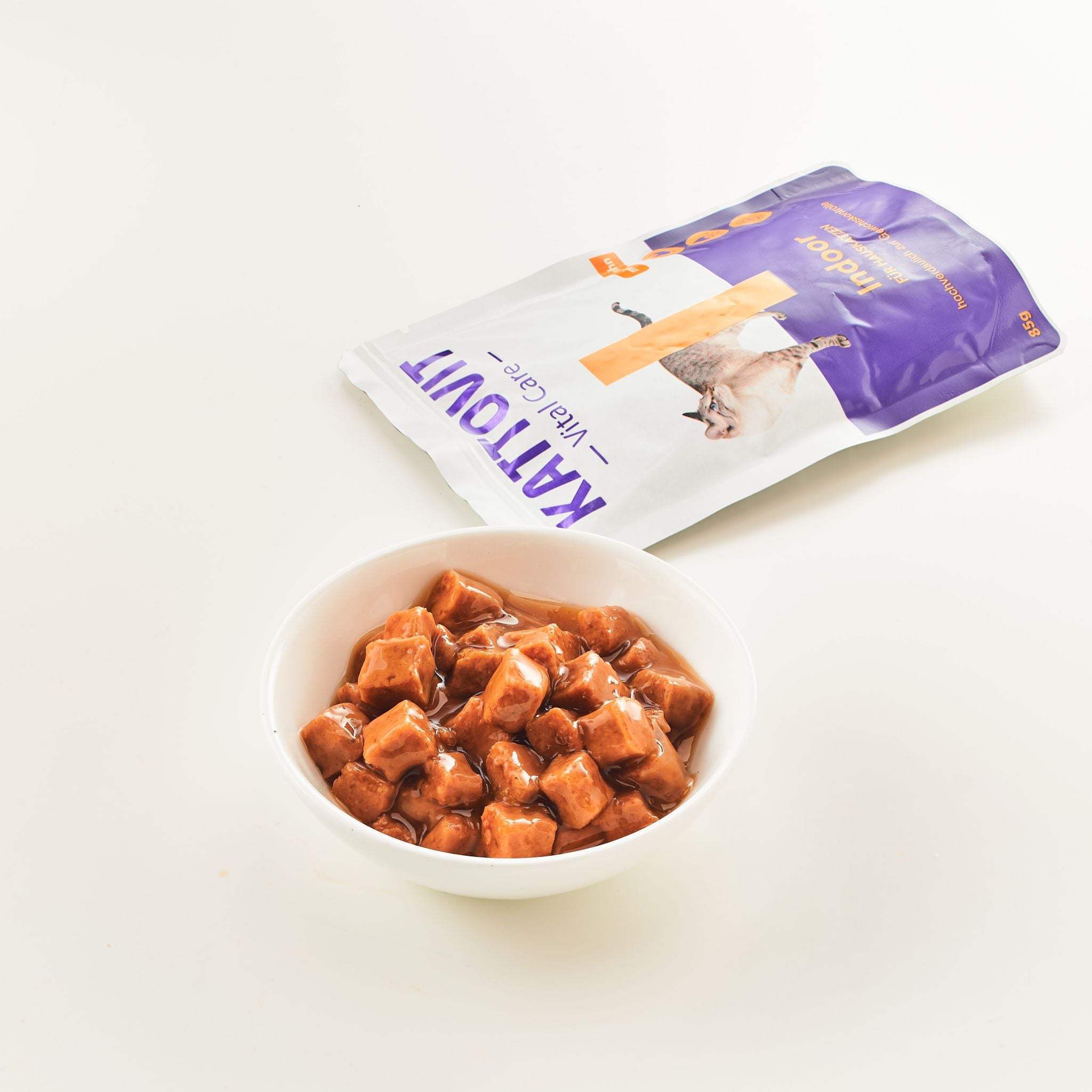
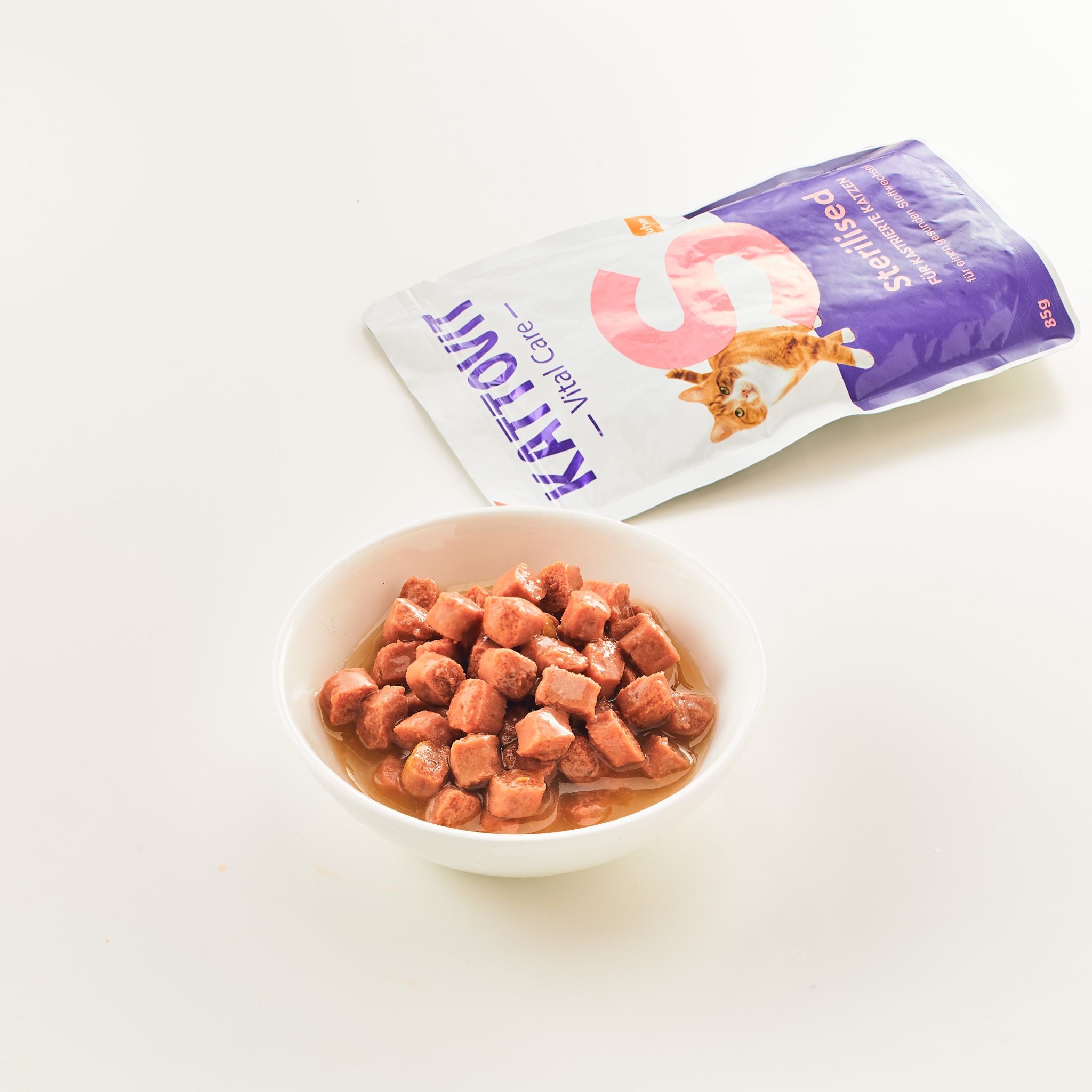
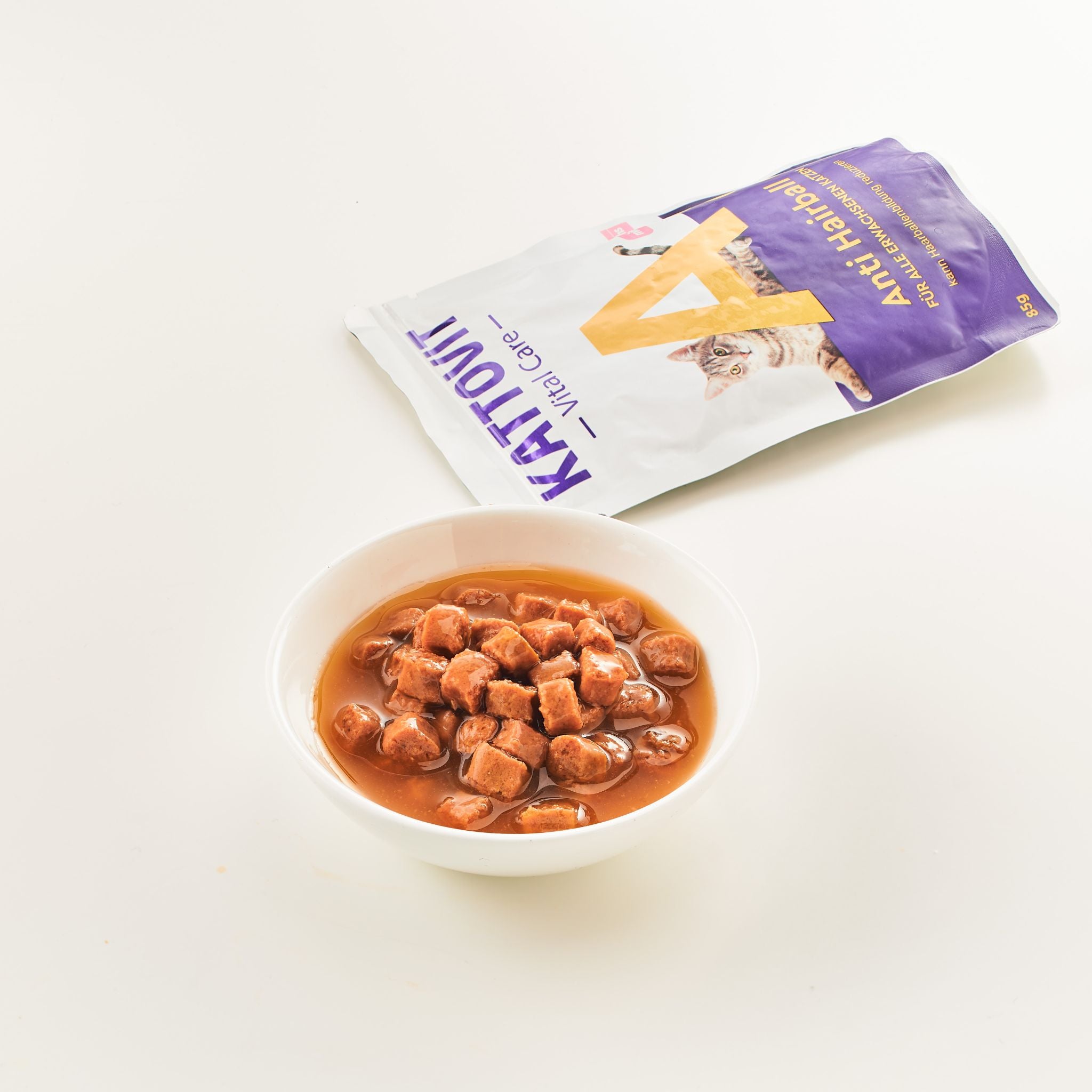
- Tasty wet food for every day
- Ideal as a trial pack
- High-quality recipes
- For a balanced diet for adult cats
Contents of the Vital Care Wellnessbox:
- Indoor | Fresh bags | 5x 85 g
- Hair & Skin | Fresh pouches | 5x 85 g
- Anti Hairball | Fresh pouches | 5x 85 g
- Sterilised | Fresh pouches | 5x 85 g
- Digestive | Fresh bags | 5x 85 g



Lieferzeit: 1 – 2 Werktage
Anti Hairball - Meat and animal by-products, fish and fish by-products (4% salmon), vegetable by-products, 2% malt, oils and fats, minerals.
Sterilised - meat and animal by-products
(including 19% chicken), fish and fish by-products, vegetable by-products, cereals, minerals.
Indoor - Meat and animal by-products (including 24% chicken), vegetable by-products, oils and fats, minerals.
Hair & Skin - Meat and animal by-products (including 39% poultry, of which 25% chicken and 14% turkey), eggs and egg products, vegetable by-products, rice (cooked), minerals.
Digestive - meat and animal by-products (including 27% chicken), 1% rice (cooked), vegetable by-products, minerals.
Anti Hairball - 9.0% crude protein, 5.0% fat content, 2.0% crude fibre, 2.2% crude ash, 82.0% moisture content, 0.25% calcium, 0.20% phosphorus, calorie content: 89 kcal / 100g.
Sterilised - 7.0% crude protein, 4.0% fat content, 0.5% crude fibre, 1.5% crude ash, 82.0% moisture content, 0.15% calcium, 0.12% phosphorus, calorie content: 80 kcal / 100g.
Indoor - 8.0% crude protein, 4.0% fat content, 0.5% crude fibre, 1.5% crude ash, 82.0% moisture content, 0.25% calcium, 0.20% phosphorus, calorie content: 84 kcal / 100g.
Hair & Skin - 8.0% crude protein, 5.0% fat content, 0.5% crude fibre, 1.5% crude ash, 82.0% moisture content, 0.35% calcium, 0.30% phosphorus, calorie content: 85 kcal / 100g.
Digestive - 8.0% crude protein, 5.0% fat content, 0.5% crude fibre, 1.5% crude ash, 81.0% moisture content, 0.25% calcium, 0.20% phosphorus, 0.15% sodium, 0.15% potassium, calorie content: 89 kcal / 100g.
Anti Hairball - Nutritional additives/kg: Vitamin A: 1,040I.E., Vitamin D3: 125I.E., Vitamin E (as all-rac-alpha-tocopheryl acetate): 20mg, iron (as iron-(II)-sulphate, monohydrate): 40mg, zinc (as zinc oxide): 28mg, copper (as copper-(II)-sulphate, pentahydrate): 1.2mg, manganese (as manganese-(II)-sulphate): 1mg, iodine (as potassium iodide): 0.6mg, taurine: 1,000mg, L-carnitine: 50mg.
Sterilised - Nutritional additives/kg:
Vitamin A: 1,040I.E., vitamin D3: 125I.E., vitamin E (all rac-alpha-tocopheryl acetate): 20mg, iron (as iron (II) sulphate, monohydrate): 40mg, zinc (as zinc oxide): 27mg, copper (as copper (II) sulphate, pentahydrate): 1.2mg, manganese (as manganese (II) sulphate): 1mg, iodine (as potassium iodide): 0.6mg, taurine: 580mg, DL-methionine: 1,200mg.
Indoor - Nutritional additives/kg: vitamin A: 1,040I.E., vitamin D3: 125I.E., vitamin E (as all-rac-alpha-tocopheryl acetate): 20mg, iron (as iron (II) sulphate, monohydrate): 40mg, zinc (as zinc oxide): 28mg, copper (as copper (II) sulphate, pentahydrate): 1.2mg, manganese (as manganese (II) sulphate): 1mg, iodine (as potassium iodide): 0.6mg, taurine: 1000mg, L-carnitine: 50mg.
Hair & Skin - Nutritional additives/kg: Vitamin A: 1,040I.E., vitamin D3: 125I.E., vitamin E (all rac-alpha-tocopheryl acetate): 20mg, iron (as iron (II) sulphate, monohydrate): 40mg, zinc (as zinc oxide): 27mg, copper (as copper (II) sulphate, pentahydrate): 1.2mg, manganese (as manganese (II) sulphate): 1mg, iodine (as potassium iodide): 0.6mg, taurine: 560mg.
Digestive - Nutritional additives/kg:
Vitamin A: 1,040I.E., vitamin D3: 125I.E., vitamin E (all-rac-alpha-tocopheryl acetate): 20mg, iron (as iron-(II)-sulphate, monohydrate): 40mg, zinc (as zinc oxide): 27mg, copper (as copper-(II)-sulphate, pentahydrate): 1.2mg, manganese (as manganese-(II)-sulphate): 1mg, iodine (as potassium iodide): 0.6mg, taurine: 720mg.
top bewertungen
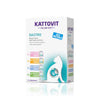
bestseller
Wet food | Multibox | Gastro | 12 x 85g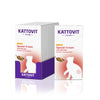
bestseller
Snack | Special Cream | Box | 11 x 6 x 15g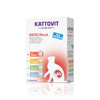
Diet food for cats
Wet food | Multibox | Kidney-Renal | 12 x 85g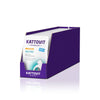
bestseller
Wet food | Chicken & Rice | Fresh pouch | 24 x 85g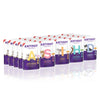
bestseller
Wellness Box | sample package | 25 x 85g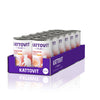
bestseller
Drink | Chicken | Can | 12 x 135ml
bestseller
Wet food | Chicken & Rice | Fresh pouch | 24 x 85gYour questions - our answers!
frequently asked Questions
If your cat frequently vomits hairballs or generally has a lot of fur and sheds a lot, you can help her in various ways: Brush and comb their fur regularly and remove loose and dead hair so that your velvet paw does not swallow it. This will prevent hairballs from forming. You can also make it easier for your cat to vomit hairballs or excrete them in their faeces. To do this, you should change your cat's diet to several small meals of wet or dry food per day to stimulate intestinal activity, and if your cat has difficulty excreting hairballs, you can help with cat grass. To do this, place one or more pots of special cat grass for your indoor cat. The cat grass triggers a gag reflex and helps the cat to vomit up the hairballs. Fibre-rich food with lots of fibre and malt paste can also help the animal to eliminate hairballs via the intestines. If this does not work and you notice that your furry friend is unwell and is suffering from abdominal pain, diarrhoea or vomiting, for example, you should consult a vet immediately.
Vomiting hairballs is initially quite normal in cats and is part of everyday life. As a rule, cats regurgitate hairballs around once or twice a week. As they swallow a lot of hair in the course of grooming, hairballs can also be found in their faeces. If your cat is a long-haired cat or a cat with a particularly thick undercoat, it may vomit hairballs more often. Your cat may also regurgitate hairballs more frequently in spring or autumn due to the change of coat, but if your cat regurgitates large hairballs unusually often, you should take note. Unsuccessful attempts to retch, vomit or defecate are also clear warning signs. The hairballs in your cat's stomach may be too large to get rid of naturally. Affected velvet paws often show loss of appetite and tenderness in the abdominal region. Vomiting of undigested food or diarrhoea are also possible. Consult a vet immediately at the first sign of hairballs, as they can otherwise lead to inflammation and an intestinal blockage.
Translated with DeepL.com (free version)
It is quite normal for cats to sleep a lot: adult cats spend an average of 15 to 16 hours a day sleeping, but usually only up to half an hour at a time. Old cats can need up to 18 hours of sleep, while kittens spend as much as 90 % of the day sleeping. As cats are very alert and active animals, they need a lot of sleep to replenish their energy reserves and regenerate.
Do not feed your cat immediately after vomiting. Wait half a day to avoid overloading the irritated stomach again. Then start with a light diet such as pre-cooked chicken, boiled rice and carrots. Also, only feed small portions. You should not offer fatty food or raw meat, as this can irritate the stomach again. It is also important that you provide your pet with plenty of fluids and possibly electrolytes.
If cats vomit, this is due to a protective mechanism of the immune system. If it feels threatened, for example by viruses, parasites or spoilt food, it tries to get rid of the stomach contents. The fact that your cat vomits at this moment is initially a good thing. The body is protecting itself from danger. Only if the vomiting continues frequently over several hours or occurs in combination with other symptoms does it become problematic for the animal, as it loses a lot of water and nutrients. In this case, a vet must be consulted.
If your cat has diarrhoea, it is important to feed it a gentle diet to avoid further irritating its stomach. You can prepare easily digestible, low-fat food such as boiled chicken, turkey, unseasoned rice or mashed potatoes. You can also buy diet food tailored to cats with digestive problems and special food for cats with food intolerances from specialist retailers.
Diarrhoea in cats can be caused by many different things. Your cat's stomach can react sensitively to the wrong food without there being anything more serious behind it. Stress and major changes in your cat's life can also cause diarrhoea, as can parasite infestation, a food allergy/intolerance, poisoning, an abrupt change of food, an infection or a serious illness. A supply of sufficient drinking water and a light diet are now essential. If the diarrhoea lasts longer and is accompanied by other symptoms, you should definitely take your cat to the vet and have the causes professionally investigated.
If cats are in pain, they usually try to hide it for a long time. They withdraw and show little sign of it. You can usually recognize abdominal pain in your cat by the fact that it adopts a bent posture with its back arched and its stomach drawn in. If you pick your cat up, it will not like it if it has stomach pain and will hardly tolerate you touching it. Suffering cats often show their dislike by hissing or scratching, and as abdominal pain is often a symptom of a more serious illness or injury, there are often other signs such as exhaustion, tiredness, refusal to eat, vomiting, diarrhea, growling, moaning or problems with defecation. Observe your cat closely and have it examined by a vet if you suspect abdominal pain or other symptoms.
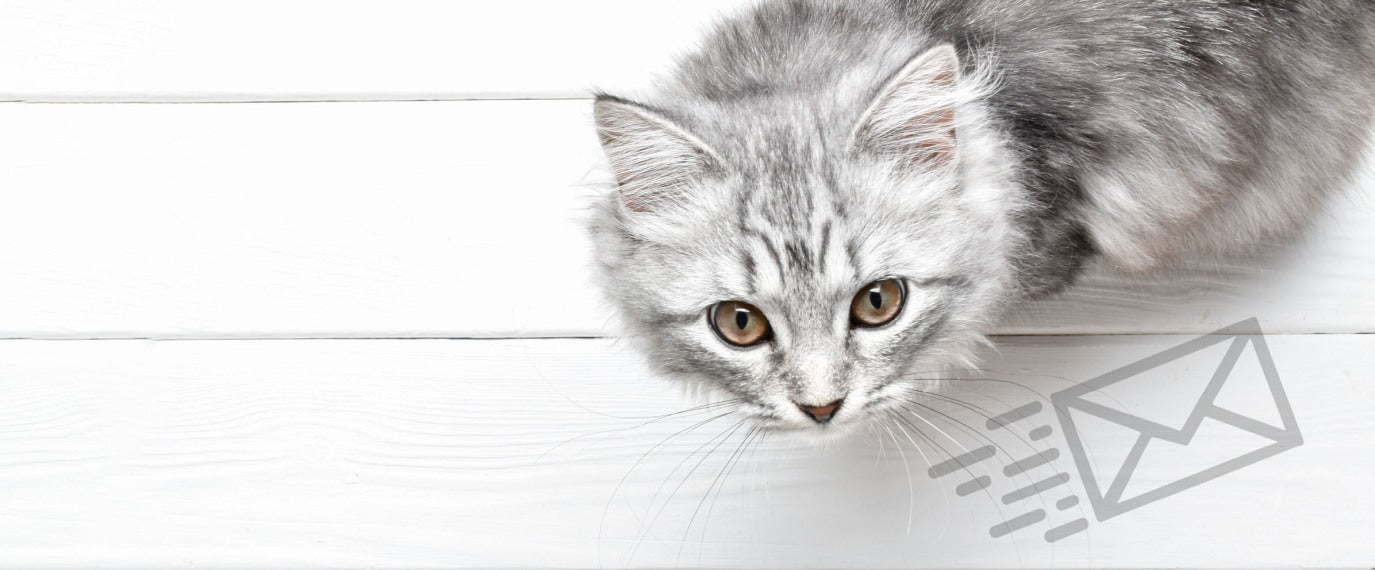
Newsletter
Subscribe to Newsletter
Stay informed and always up to date with KATTOVIT. Be the first to hear about new products, discounts, advice texts, etc.
Proven Quality
Tested quality based on the latest veterinary findings
Always fresh
Guaranteed freshness, directly from the manufacturer - for the best care for your pet.
40 years of experience
More than 40 years of experience and expertise in the production of high-quality animal feed.
Einfache & sichere Bezahlung